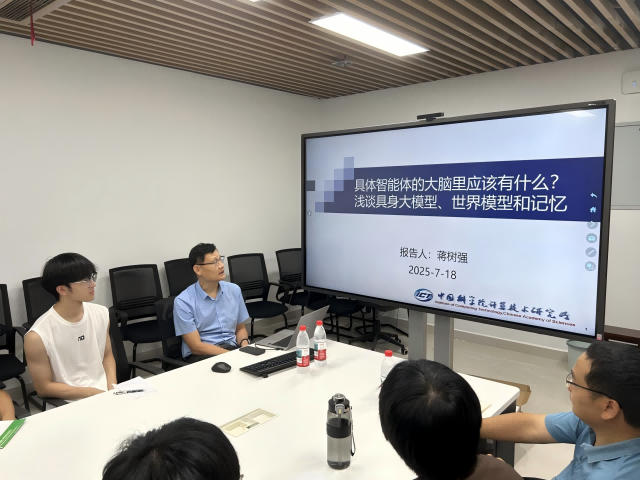Professor Jiang Shuqiang, Distinguished Professor and Ph.D. Supervisor at the University of Chinese Academy of Sciences, at the invitation of Taizhou University, delivered on the morning of July 18th an academic report titled “What Should Be in the Brain of an Embodied Agent? A Brief Discussion on Embodied Large Models, World Models, and Memory.” This report attracted teachers and students from School of Artificial Intelligence. The report was chaired by Professor Zhang Shiqing, Dean of the school.

Professor Jiang Shuqing delivering his report
In his report, Professor Jiang systematically introduced the cutting-edge direction in artificial intelligence—embodied intelligence. He pointed out that embodied intelligence is achieved through real interaction between an intelligent agent and its environment, characterized by initiative, interactivity, and contextualization. It is a core key for AI to move into the physical world.
Professor Jiang deeply explored the complex relationships between the body, environment, and intelligence involved in embodied intelligence, emphasizing that an agent’s brain needs to effectively integrate environmental, historical, and physical knowledge information, which is closely linked to frontier concepts such as embodied large models, world models, and embodied memory.
He elaborated in detail on the definitions, connotations, and key roles of these core concepts within embodied intelligent systems. Combining the latest research from his team, he shared the most recent research progress and demonstrated technical achievements in this field.